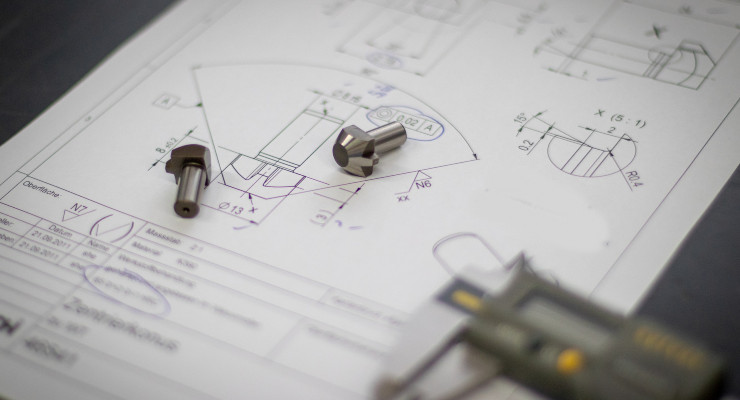There are challenges to address for non-medical device manufacturers seeking to assist with the effort against COVID-19.

As automotive, industrial, and other manufacturers step up to help increase output of ventilators as well as other medical devices and supplies needed to combat the coronavirus pandemic, many such firms must quickly become familiar with market entry requirements of the U.S. Food and Drug Administration (FDA) and other healthcare regulators that can differ substantially from those of other manufacturing sectors.
In the United States, FDA has established emergency-access pathways known as Emergency Use Authorizations (EUAs) whereby non-medical manufacturers may produce and distribute medical devices and equipment in short supply without undergoing full premarket reviews and compliance checks, but even the less-stringent EUA market pathway may still require substantial retooling of systems and processes. Non-medical manufacturers interested in helping to boost supplies of ventilators and other needed devices to treat COVID-19 patients should be aware of regulations. Further, they need to recognize the quality, safety, and performance standards that will apply, as well as establish plans for how to maintain U.S. market access for their devices once FDA terminates relevant EUAs.
Partnering with an OEM
A key issue determining how much work a non-medical manufacturer will face in terms of FDA and healthcare-specific standards compliance entails whether or not the company plans to partner with an original equipment manufacturer (OEM) to increase production of a device already cleared or approved by FDA for sale in the U.S.
In cases where a non-medical manufacturer is working with an OEM (e.g., the effort between automakers such as GM and Ford and medical device companies to develop ventilators), the non-medical manufacturer would be considered an alternate manufacturing location for the OEM. In these arrangements, manufacturers are producing new devices using designs already developed by OEMs, and thus, already cleared or approved by FDA. Since devices produced via “alternate manufacturing locations” would have the same safety, performance, and materials characteristics as original OEM devices already reviewed by FDA, these new products would only need to undergo production-line testing.
Thus, by opting to work with an established OEM already marketing an FDA-cleared or approved device in the U.S., an automaker has a partner that has already carried out necessary safety and performance testing, quality system implementation, and risk management processes that FDA requires, usually resulting in a smoother path to market.
FDA EUA Considerations
In instances where non-medical manufacturers do not team up with OEMs, devices they produce would likely not qualify as FDA cleared or approved, triggering various testing and quality assurance requirements from the agency in order to gain U.S. market access.
In response to the COVID-19 emergency in the U.S., however, FDA has established EUAs for mission-critical medical devices and supplies such as ventilators, IVD test kits, sterilization systems, and personal protective equipment. Taking ventilators as an example, FDA has expressed willingness to work with non-medical manufacturers including major automakers to boost supplies of these devices, and determines on a case-by-case basis whether a particular device qualifies for EUA designation.
Non-medical manufacturers producing devices from scratch—i.e., without reliance on OEMs—are encouraged to engage in “pre-EUA” consultations with FDA to plan potential EUA designations for their products and potentially map out which compliance requirements the agency will impose in terms of safety, quality, and performance. Even though EUA designation provides speedier market access compared to standard FDA clearance and approval routes, premarket registration and compliance requirements will not be completely waived.
Non-medical manufacturers may need to accommodate FDA regulations as well as standards such as those listed here in order to bring ventilators and other devices to market under EUA designations.
- FDA Quality System Regulations (21 CFR Part 820)
- The IEC 60601 family of standards for medical electrical equipment
- ISO 10993 for biological evaluations of medical devices
- IEC 62304 for medical device software life cycle processes
General Steps for Factory Retooling
Factory retooling to facilitate the manufacture of medical devices and supplies according to FDA EUA requirements involves several moving parts.
One key consideration is medical versus industrial quality management. While non-medical manufacturers such as automakers already have rigorous quality control measures implemented, these companies will still have to ensure at least partial compliance to FDA Quality System Regulations specific to medical devices depending on their EUA designation requirements.
In addition, non-medical manufacturers will need to implement standard operating procedures and training protocols in accordance with FDA requirements; establish access to medical-grade, fully traceable materials and components; and adequate cleanroom and sterilization capabilities.
Finally, non-medical manufacturers must establish systems capable of maintaining records of devices shipped under Emergency Use Authorizations, as well as reporting any adverse events involving such devices to FDA.

